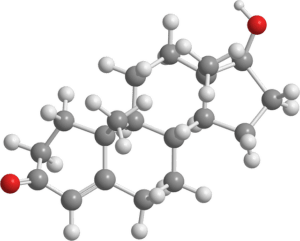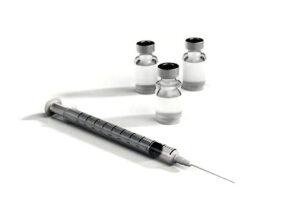Testosterone Replacement Therapy in Phoenix, Arizona
Bioidentical Male Hormone Replacement Therapy

Testosterone Replacement Therapy in Phoenix, Arizona
Bioidentical Male Hormone Replacement Therapy
Learn more about Testosterone Therapy

Testosterone is a hormone produced by the testicles in men and by the ovaries in women. For more information on how bioidentical hormones help women, click here. Testosterone is also important for maintaining muscle bulk, adequate levels of red blood cells, bone density, sense of well-being, and sexual and reproductive function. If you are experiencing testosterone deficiency, bioidentical testosterone replacement therapy may be right for you.
1 What causes testosterone deficiency?
As a man ages, the amount of testosterone his body produces gradually declines. This natural decline starts after age 30 and continues throughout life. Testosterone therapy can provide your body with the natural hormones necessary to maintain a vibrant, healthy lifestyle.
2 What are the symptoms of testosterone deficiency?
Symptoms of testosterone deficiency that may improve with testosterone replacement therapy include the following:
- Decreased sex drive
- Decreased sense of well-being
- Depressed mood
- Difficulties with concentration and memory
- Erectile dysfunction


3 What are the changes that occur in the body with testosterone deficiency?
Changes that occur with testosterone deficiency include:
- Decrease in muscle mass, with an increase in body fat
- Variable effects on cholesterol metabolism
- Decrease in hemoglobin and possibly mild anemia
- Fragile bones (osteoporosis)
- Decrease in body hair
4 How do I find out if I have a testosterone deficiency?
5 What options are available for testosterone replacement therapy?
The options available for testosterone replacement treatment are:
- Intramuscular injections, generally every one to three weeks.
- Testosterone gel or cream that is applied daily to the scrotal, inner thighs or inner arms.
Each of these options provides adequate levels of hormone replacement. Each has side effects and advantages and disadvantages.
Intramuscular injections produce wider swings in hormone concentration, with higher levels shortly after the injection and lower levels just before the next injection is due. They may also produce increases in blood cell count that are higher than normal. The gels require care in making sure that the hormone is not accidentally transferred to another person or partner.
There are currently no pills available in the United States that provide adequate levels of hormone replacement. In addition, oral medications may produce liver abnormalities and are to be avoided.
The choice of hormone replacement therapy is best made with a thorough discussion between a patient and his physician.



6 Who shouldn’t take testosterone replacement therapy?
7 What are the side effects of testosterone replacement therapy?
In general, hormone replacement therapy is safe. It is associated with some side effects, including:
- Acne or oily skin
- Mild fluid retention
- Stimulation of prostate tissue, with perhaps some increased urination symptoms such as decreased stream or frequency.
- This is easily countered with either natural or pharmaceutical estrogen blockers.
- Breast enlargement. Also reversed or prevented via estrogen blockers.
- Worsening of sleep apnea (a sleep disorder that results in frequent night time
- Awakenings and daytime sleepiness)
- Decreased testicular size.
- Reversed or prevented via hCG cycling and/or estrogen blockers.
- Decrease in cholesterol concentrations
- Increase in red cell count
- Decrease in sperm count, producing infertility (especially in younger men). hCG cycling will prevent or minimize this.
If you are taking hormone replacement therapy, regular follow-up appointments with your physician are important.
Many of these side effects are not common.

Additional Resources
Visit isitlowt.com

 Meet the Practitioners
Meet the Practitioners